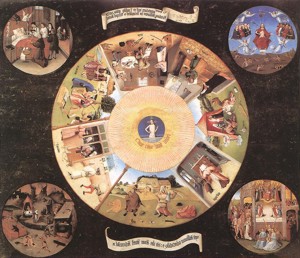 Jim Belcher’s right about this, and it is one of the deep characteristics about the emerging movement and it emerges from a suspicion about how evangelism works, about how the gospel works, about how conversion actually works:
Jim Belcher’s right about this, and it is one of the deep characteristics about the emerging movement and it emerges from a suspicion about how evangelism works, about how the gospel works, about how conversion actually works:
“What do people have to believe before they belong? What is the role of doctrine? What is the role of community in bringing people to and nurturing them in the faith?” (94). The mantra one can hear at times is “belonging before believing.” People believe in today’s world after belonging.
What is the proper order? Do you think “belonging before believing” is a good strategy today? What do you think is required in order to “belong” to a church community? What are the weaknesses? Is this the old mainline, liturgical “assumption that one is a Christian” or is it a different strategy? How “far in” does “belong” mean: Does it mean Lord’s Supper, teaching, leadership? Where does the “belong before believe” draw the line? Does it draw a line at all?
This can be found in chp 5 of Jim’s new book: Deep Church: A Third Way Beyond Emerging and Traditional .
.
 The issue here is using doctrine as the gate and gatekeeper. The abuse by some has given “evangelism” a bad reputation — anway, here’s a picture that sums up what many in emerging think about the way many evangelize. (HT: ST)
The issue here is using doctrine as the gate and gatekeeper. The abuse by some has given “evangelism” a bad reputation — anway, here’s a picture that sums up what many in emerging think about the way many evangelize. (HT: ST)
The problem here is how far does belonging go without any sense of correct belief or discipleship? Is there a Third Way?
Belcher thinks so.He learned it from a colleague in the structure of the Gospels: Galilean public mission, transitional trip to Jerusalem, and the cross and resurrection. That is, “who is Jesus?” and then “Who do you think I am?” and then the “Take and eat” and either you do or you don’t. Belonging eventually leads to commitment to Jesus himself. Without that latter step, the process is incomplete.

